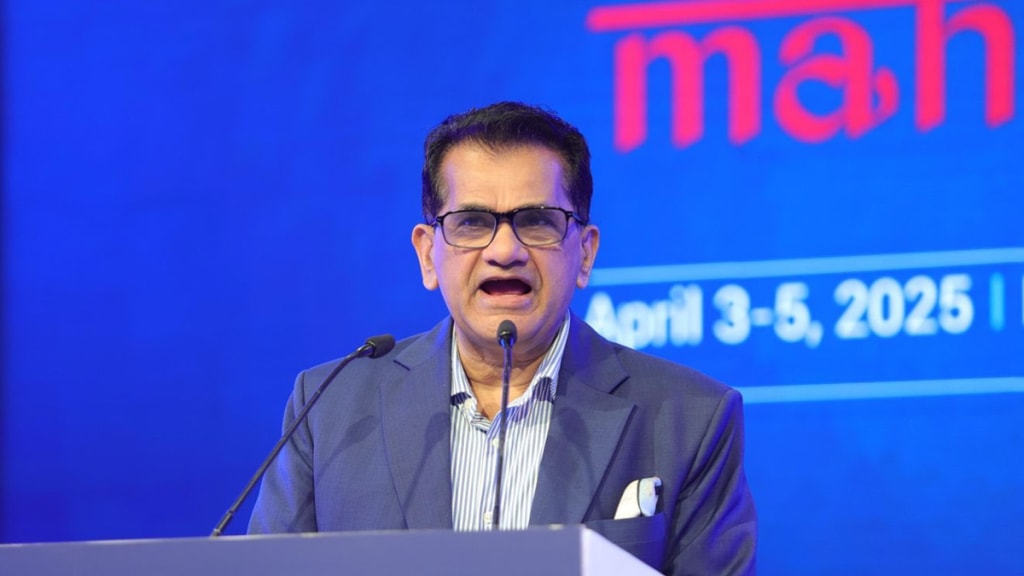Amitabh Kant, G20 Sherpa and former CEO of NITI Aayog, on Friday said that Indian startups have made progress across various sectors and will continue to perform well in emerging verticals. He pointed out that while China has made global strides in deep technology, electric vehicles (EVs), clean technology, and battery manufacturing, Indian startups also have the potential to create a global impact in these areas. His remarks come a day after Commerce Minister Piyush Goyal highlighted the difference in approach to innovation and business of Indian startups and their Chinese counterparts.
“Indian startups have done a good job in every field and will continue to do well in new fields also,” Kant told FE Online on the sidelines of the Startup Mahakumbh event.
Goyal highlighted at Startup Mahakumbh event on Thursday that while Indian startups are playing a pivotal role in the digital economy with business ideas around food delivery, instant grocery delivery, and influencer-driven social media platforms, Chinese startups are making strides in global fields such as electric vehicle (EV) technology, semiconductor development, robotics, automation, and more.
While Goyal hailed the success of Indian startups in food delivery and quick commerce sectors, he indicated that these ventures may not match the global impact made by Chinese startups.
Meanwhile, underscoring the significance of sovereignty in AI, Kant, in his address at the event, stressed the need for Indian startups to create indigenous AO models based on Indian data which is devoid of Western biases.
He argued that dependence of Indian startups on Western models may hurt India’s cultural identity and civilisation strength.
Kant called on startups to focus on disruptive innovation in emerging technology areas such as deep tech, AI, EVs, battery storage, and the circular economy.
“This is day and age of huge disruption and India must demonstrate a willingness to make a quantum jump in deeptech, space, drones, batteries, and cleantech. I’m making this point because China today controls about 70 per cent of the solar market, close to 74 per cent of the battery market, and close to 80 per cent of EV market. Hence, these are areas where it will be important for India to make a breakthrough,” he said.
“This breakthrough will not come from established companies; it will be startups that will make all the difference,” Kant added.
Importantly, the government in this year’s budget had announced that it will explore a dedicated Fund of Funds for deeptech startups along with a proposed Rs 20,000 crore investment for private sector-led research, development and innovation.
“This will enable venture funds to take far more investment risks in cybersecurity, AI, and semiconductor where we need to make huge disruptions,” said Kant.


